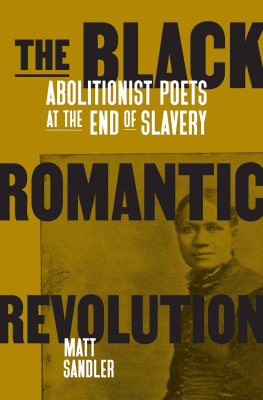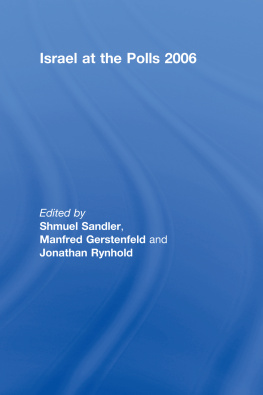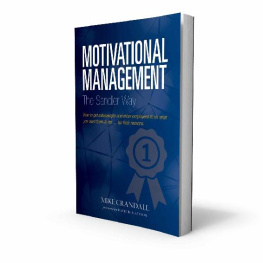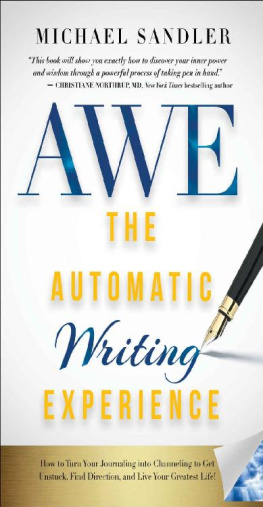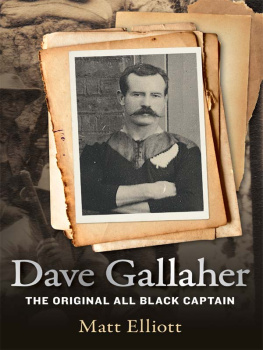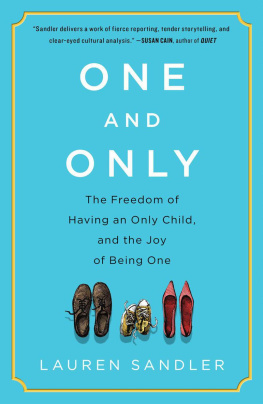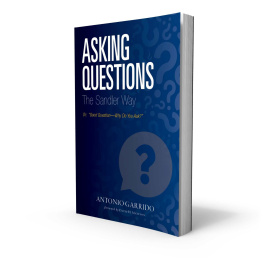Matt Sandler - The Black Romantic Revolution
Here you can read online Matt Sandler - The Black Romantic Revolution full text of the book (entire story) in english for free. Download pdf and epub, get meaning, cover and reviews about this ebook. publisher: Lightning Source Inc. (Tier 1), genre: Detective and thriller. Description of the work, (preface) as well as reviews are available. Best literature library LitArk.com created for fans of good reading and offers a wide selection of genres:
Romance novel
Science fiction
Adventure
Detective
Science
History
Home and family
Prose
Art
Politics
Computer
Non-fiction
Religion
Business
Children
Humor
Choose a favorite category and find really read worthwhile books. Enjoy immersion in the world of imagination, feel the emotions of the characters or learn something new for yourself, make an fascinating discovery.
- Book:The Black Romantic Revolution
- Author:
- Publisher:Lightning Source Inc. (Tier 1)
- Genre:
- Rating:4 / 5
- Favourites:Add to favourites
- Your mark:
- 80
- 1
- 2
- 3
- 4
- 5
The Black Romantic Revolution: summary, description and annotation
We offer to read an annotation, description, summary or preface (depends on what the author of the book "The Black Romantic Revolution" wrote himself). If you haven't found the necessary information about the book — write in the comments, we will try to find it.
The Black Romantic Revolution — read online for free the complete book (whole text) full work
Below is the text of the book, divided by pages. System saving the place of the last page read, allows you to conveniently read the book "The Black Romantic Revolution" online for free, without having to search again every time where you left off. Put a bookmark, and you can go to the page where you finished reading at any time.
Font size:
Interval:
Bookmark:

The Black Romantic Revolution
Matt Sandler is director of the MA program in American Studies at Columbia Universitys Center for the Study of Ethnicity and Race. He was previously an adjunct professor at Louisiana State University, Gettysburg College, and the University of Oregon. His writing has appeared in a number of journals, anthologies, and online publications. He is from Miami, Florida.
The Black
Romantic Revolution
_________________________
Abolitionist Poets at
the End of Slavery
Matt Sandler

First published by Verso 2020
Matt Sandler 2020
All rights reserved
The moral rights of the author have been asserted
1 3 5 7 9 10 8 6 4 2
Verso
UK: 6 Meard Street, London W1F 0EG
US: 20 Jay Street, Suite 1010, Brooklyn, NY 11201
versobooks.com
Verso is the imprint of New Left Books
ISBN-13: 978-1-78873-544-5
ISBN-13: 978-1-78873-543-8 (LIBRARY)
ISBN-13: 978-1-78873-546-9 (US EBK)
ISBN-13: 978-1-78873-545-2 (UK EBK)
British Library Cataloguing in Publication Data
A catalogue record for this book is available from the British Library
Library of Congress Cataloging-in-Publication Data
Names: Sandler, Matt, author.
Title: The black romantic revolution : abolitionist poets at the end of slavery / Matt Sandler.
Description: First edition. | London ; New York : Verso Books, 2020. | Includes bibliographical references and index. | Summary: During the pitched battle over slavery in the United States, Black writers-enslaved and free-allied themselves with the cause of abolition and used their art to advocate for emancipation and to envision the end of slavery as a world-historical moment of possibility. They borrowed from the European tradition of Romanticism-its lyric poetry, prophetic visions-to write, speak, and sing their hopes for what freedom might mean. Authors like Frances Ellen Watkins Harper, George Moses Horton, Albery Allson Whitman, and Joshua McCarter Simpson conceived the Civil War as a revolutionary upheaval on par with Europes stormy Age of Revolutions Provided by publisher.
Identifiers: LCCN 2020015400 (print) | LCCN 2020015401 (ebook) | ISBN 9781788735445 (paperback) | ISBN 9781788735438 (library binding) | ISBN 9781788735469 (ebk)
Subjects: LCSH: American poetry African American authors History and criticism. | American poetry 19th century History and criticism. | Romanticism United States History 19th century. | Liberty in literature. | Slavery in literature. | African Americans in literature.
Classification: LCC PS153.N5 S255 2020 (print) | LCC PS153.N5 (ebook) | DDC 811/.309896073 dc23
LC record available at https://lccn.loc.gov/2020015400
LC ebook record available at https://lccn.loc.gov/2020015401
Typeset in Sabon by MJ & N Gavan, Truro, Cornwall
Printed in the UK by CPI Group (UK) Lrd, Croydon CR0 4YY
Dedicated to the memory of
Marcellus Blount,
teacher, friend, and fellow romantic,
without whom this book would not exist.
Is it possible to believe that the slaves who were whipped into building the pyramids saw their work in a lyrical light?
Antonio Gramsci, 1930
Naturally and necessarily the enemy of literature, it has become the prolific theme of much that is profound in argument, sublime in poetry, and thrilling in narrative. From the soil of slavery itself have sprang forth some of the most brilliant productions, whose logical levers will ultimately upheave and overthrow the system. Gushing fountains of poetic thought, have started from beneath the rod of violence, that will long continue to slake the feverish thirst of humanity outraged, until swelling to a flood it shall rush with wasting violence over the ill-gotten heritage of the oppressor.
Lucius Matlack, 1849
Power from my tongue flows like a river
George Moses Horton, 1845
Thus we have found how yearns the poorest slave
For freedomhow at patriotisms shrine,
The ardor of exile is divine
Albery Allson Whitman, 1884
Oh, life is fading away, and we have but an hour of time! Should we not, therefore, endeavor to let its history gladden the earth?
Frances Ellen Watkins [Harper], 1859[?]
Contents
____________________
__________________
I n early 1861, the abolitionist lecturer, organizer, and poet Frances Ellen Watkins Harper took an interest in the case of Sara Lucy Bagby, who had escaped from slavery in western Virginia to Cleveland, Ohio. Bagbys arrest under the Fugitive Slave Law attracted significant attention; four Southern states had already seceded, and it was widely considered a test of Northern allegiance to the Compromise of 1850, which had provisionally settled conflict about the reach of slavery in the West. Harper had married the previous fall, taking her husbands poetic surname, and she intended to settle in Ohio, which by then had been traversed by fugitives from the Southwest for decades. As she had since the start of her career as an abolitionist a decade and a half earlier, Harper responded to the news about Bagbys case with a poem, entitled To the Union Savers of Cleveland: An Appeal from One of the Fugitives Own Race. Announcing herself as a Black woman, she addressed the white Ohioans who hoped to avoid the outbreak of sectional conflict by sending Bagby back to slavery. She took their politically expedient moral weakness as the occasion for a prophecy:
Men of Cleveland, had a vulture
Sought a timid dove for prey
Would you not, with human pity,
Drive the gory bird away?
Had you seen a feeble lambkin,
Shrinking from a wolf so bold,
Would ye not to shield the trembler,
In your arms have made its fold?
But when she, a hunted sister,
Stretched her hands that ye might save,
Colder far than Zemblas regions,
Was the answer that ye gave.
On the Unions bloody altar,
Was your hapless victim laid;
Mercy, truth, and justice shuddered,
But your hands would give no aid.
And ye sent her back to the torture,
Robbed of freedom and of fright.
Thrust the wretched, captive stranger.
Back to slaverys gloomy night.
Back where brutal men may trample,
On her honor and her fame;
And unto her lips so dusky,
Press the cup of woe and shame.
There is blood upon our city,
Dark and dismal is the stain;
And your hands would fail to cleanse it,
Though Lake Erie ye should drain.
Theres a curse upon your Union!
Fearful sounds are in the air;
As if thunderbolts were forging
Answers to the bondmans prayer.
Ye may bind your trembling victims,
Like the heathen priests of old;
And may barter manly honor
For the Union and for gold;
But ye cannot stay the whirlwind,
When the storm begins to break;
And our God doth rise in judgment
For the poor and needys sake.
And your guilty, sin-cursed Union
Shall be shaken to its base,
Till ye learn that simple justice
Is the right of every race.
To the Union Savers of Cleveland was broadcast throughout the abolitionist press. First published in the Ohio-based abolition newspaper The Anti-Slavery Bugle on February 23, 1861, it was then reprinted in William Lloyd Garrisons Liberator on March 8. Bagbys fame came to include the fact that she was the last person in the United States returned to bondage under the Fugitive Slave Law. She was finally freed from slavery a few months later, when Union forces took West Virginia in the summer. Harpers poem is what one of her contemporaries, James Monroe Whitfield, called a song of fiercest passion: it orchestrates love, rage, and sadness at once. It begins with a depth of feeling for its subject so intense as to seem inhuman; Bagby is a timid dove and feeble lambkin; her captor a gory bird and a wolf. With these simply fabled figures, Harper implicates her Northern, white contemporaries in the systemic, national, and epochal crime of slavery, now overdue for a reprisal.
Font size:
Interval:
Bookmark:
Similar books «The Black Romantic Revolution»
Look at similar books to The Black Romantic Revolution. We have selected literature similar in name and meaning in the hope of providing readers with more options to find new, interesting, not yet read works.
Discussion, reviews of the book The Black Romantic Revolution and just readers' own opinions. Leave your comments, write what you think about the work, its meaning or the main characters. Specify what exactly you liked and what you didn't like, and why you think so.

